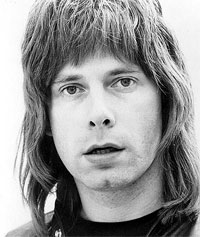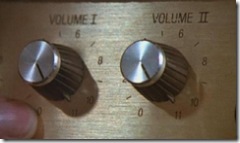I met crime writer Paul Johnstone a few weeks ago for a very pleasent few hours in the Shelbourne Hotel in Dublin to shoot the breeze over his new book. The resulting interview was published in The Sunday Business Post.
Enjoy.
First Person: Johnston bounces back
Sunday, July 08, 2007 – By Alex Meehan
Crime writer Paul Johnston could have been forgiven for giving up his writing career and trying his hand at something else. After all, not everyone could work through writer’s block, being dumped by their publisher, losing their agent, having their marriage fail and, to top it all off, contracting a virulent form of cancer.
Yet this is exactly what the Scottish writer did. He battled all these setbacks to regain his health, find love again and have his ninth novel, The Death List, published. Johnston is back and this time he’s armed with a sense of conviction and a willingness to go places other authors shy away from.
The Death List is a page turner and, with the right push, it could be the novel to take Johnston’s career to new heights. It’s a gritty and violent thriller, set in London, pitting a crime novelist against a psychotic serial killer named the White Devil.
There’s an uncanny resemblance between Johnston and his latest protagonist, Matt Wells – he too is recently divorced, has writer’s block and has been dropped by his publisher. Surprisingly, he claims the resemblance is mostly coincidental.
‘‘Is Matt based on me? No, not really,’’ Johnston says.
‘‘At least I didn’t plan it that way and anyway, there’s nothing much in that for a writer unless you mess your characters around to have fun. Really, this is a book about the nature of revenge.”
In the story, Matt is depicted as a writer best known for his short-lived series of detective novels set in Albania – a dig at Johnston’s own Alex Mavros series of Greek detective stories.
‘‘If anyone thinks they’re featured in the book and that I’ve treated them badly, then at least I’ve also made fun of myself. Satire doesn’t take any prisoners – it goes for you as the writer as well.”
Johnston was also inspired by his interest in Jacobean literature – his bad guy is named after John Webster’s tragedy The White Devil – and by the visceral nature of the urge to seek revenge experienced by people who perceive themselves wronged.
‘‘Everyone feels like knifing their boss or strangling their wife at some point, and urban myths abound featuring angry wives exacting revenge on their adulterous husbands by pouring honey in their petrol tanks or spurned au pairs phoning the speaking clock in Australia and leaving the phone off the hook,” says Johnston.
‘‘In many ways, revenge like this is quite childish, but the urge fulfils a basic human need.
‘‘The problems start when people seek to do serious harm, like the White Devil in the book. That was the premise on which I based this story – I wanted to investigate that.”
While Johnston’s books have never been lacking in violent content, The Death List is notably darker in this regard.
The author underwent serious surgery to battle the cancer he was diagnosed with in 2003. The resulting operation to remove a kidney and surrounding tissue left him scarred and thoughtful.
‘‘Without trying to get too precious about it, I think the violence in this book is a reflection of the real world.
‘‘We do live in a violent world and I was shocked when I came out of hospital and saw what had been done to me on the operating table.
‘‘My books have never been for shrinking violets in terms of violence, but this personal experience made me more concerned to be very open about it, perhaps in a slightly disturbing way. I think this is the real world.
‘‘It’s the same here. I read an Irish paper this morning at breakfast and there was a story about how some kid had been stabbed, and someone else had been shot, and a house was blown up,” says Johnston.
‘‘At home, I have a one-and-a-half-year-old child and I spend a lot of time changing the TV channels because at any minute incredible violence from the streets of Baghdad or Gaza can appear on the screen, complete with bodies and severed limbs,” he says.
‘‘It’s up to each individual how much they want to take on. Some people will watch a movie like Seven and think it’s disgusting, and others won’t be bothered at all.
‘‘Hopefully, reading books like mine is a reasonably cathartic experience, because there’s certainly an element of writing these books that’s cathartic.
‘‘Confronting your fears robs them of power and we all go through unpleasant experiences, but that’s all part of the experience of life.
‘‘If you consciously try to stay away from horror movies, crime novels or violence on the news, you are cutting yourself off from a large part of real life. The role of death in life.”
Johnston argues that there’s nothing unhealthy about reading about the darker aspects of the human condition, as it can act as a release.
‘‘I do think crime writers have some responsibility in what they write, but when people read novels, they are capable of accepting that, while it may be a reflection of society, it’s not the real world,” he says.
‘‘Violence can also be entertaining in a dark way. I’m sure many people will remember seeing the movie Pulp Fiction in the cinema – the part where they accidentally shoot the guy in the car – everybody laughs. I’ve seen it since and I still laughed.
‘‘Sure it’s violent and revolting, but it’s also funny.”
Johnston has setout to deliberately write a commercial novel in The Death List and is unapologetic about the appeal of his books and their place in the publishing world.
‘‘I certainly don’t have a problem with the idea of commercial writing, but many people do, particularly in the world of literature.
‘‘Crime writers tend to be fairly down to earth types, because at the end of the day you’re trying to sell books and I’ve never understood why anyone would write a book if they didn’t want it to be popular and sell.
‘‘This was a deliberate attempt to write a page turner – I like reading page turners – but it’s not the easiest thing to do.
‘‘People tend to be dismissive of popular authors like James Patterson as if their commercial appeal makes them lesser writers, but in fact writing this kind of fast-paced book is difficult.”
The publishing world has been both cruel and kind to Johnston.
On one hand, he’s had eight other books published, has won awards for his writing and was able to turn professional after just his second novel.
On the other hand, he wrote three full books before being published for the first time in 1997 and, before The Death List, he was dropped by his publisher.
‘‘In my case, the reason was that my editor left the publishing house I was signed to and suddenly there was nobody in-house to champion my work. Understandably, everyone else just looks at the bottom line.”
Having worked in business in the past, the author says he can see why publishers would question the wisdom of keeping him on board, but believes there are other ways to deal with the issue rather than just dumping the author.
Johnston feels it would be better for the industry if publishers put more time into fostering talent and advising writers who aren’t hitting the mark on how to tweak their work.
‘‘I think this is a journey that all writers have to undertake at some stage,” he says.
‘‘Ian Rankin is a case in point – he’s a successful writer, but was close to being dropped in 1997; about a week later he won the Golden Dagger and since then his career has been in permanent lift-off.”
According to Johnston, publishing companies have decided not to build authors in the way they did in the past.
‘‘In literary fiction it’s not so bad – if they see someone at the age of 25 who they think may win the Booker Prize in 15 years’ time, then they probably will support them, but they certainly won’t pay them much, unless it’s obvious Zadie Smith-style material.
‘‘With genre fiction that definitely doesn’t happen. They do the sums on every book.
‘‘From an author or an agent’s perspective, this is simple – potentially any book that’s published can make money.
‘‘Perhaps not much, but people will always sell 3,000 or 5,000 copies.
‘‘Also, generally speaking, most publishing companies write off advances anyway,” says Johnston.
In order to stay published, Johnston says most authors now have to write certain kinds of books.
‘‘That’s where things get sticky, because no genre fiction writer is comfortable with the idea of being told what to write. It might not be an explicit order, but heavy hints are dropped and it’s generally made known to the author that certain types of books will be more welcome than others.
‘‘This doesn’t bother me, because I’ve never understood why an author would want to write books that wouldn’t sell anyway. That’s bonkers.
‘‘I’ve always wanted my books to be as widely read as possible, even if I haven’t always been my own best ally in that.”
Taken from The Sunday Business Post






